The power
of love
Meet the LGBTI refugees finding love beyond borders
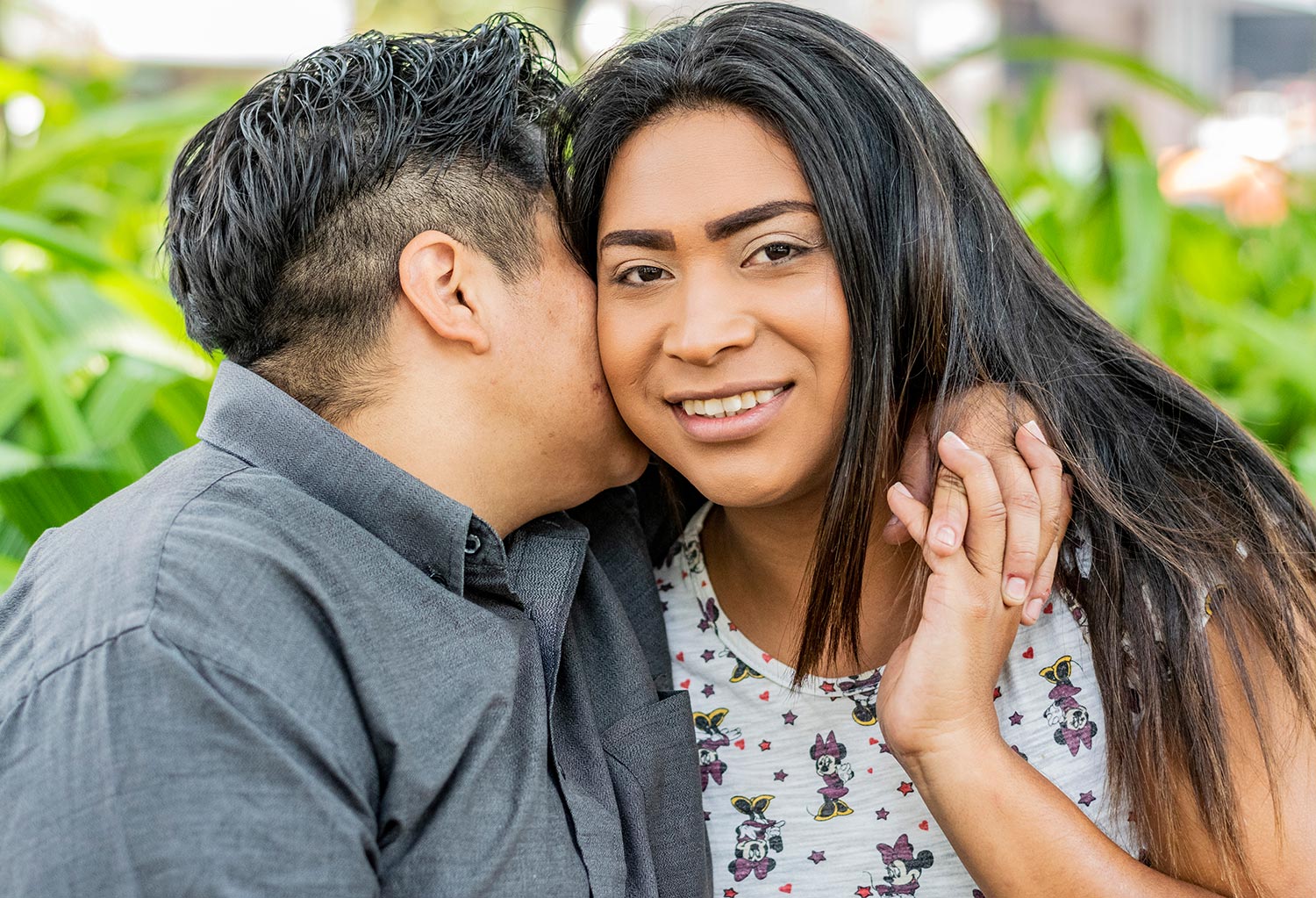
© UNHCR/Pablo Villagran
The power
of love
Meet the LGBTI refugees finding love beyond borders
Shortly after police found the body of her friend, who had been raped and killed for revealing she was gay, Maritza (left) realised she would be next.
“Mum called me one day crying,” the 48-year-old recalls. Men had put a gun to her head and said Maritza was a target. “She told me to get the hell out of there.”
The last time she saw her home of Honduras was through a plane window as the airliner set out for Spain 2008.
Photo: © UNHCR/Markel Redondo
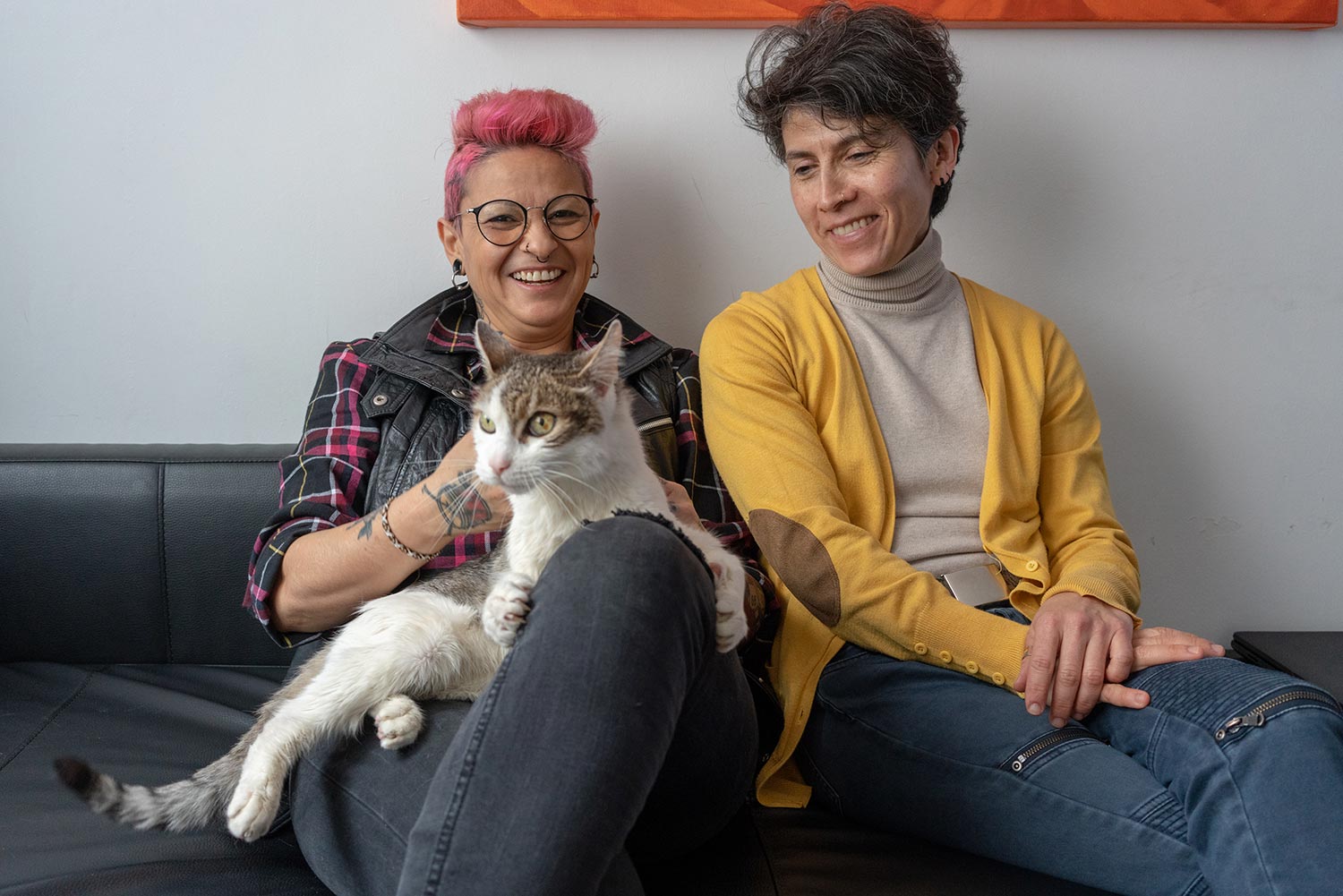
© UNHCR/Markel Redondo
Shortly after police found the body of her friend, who had been raped and killed for revealing she was gay, Maritza (left) heard the news that she would be next.
“Mum called me one day crying,” the 48-year-old recalls. Men had put a gun to her head and said Maritza was a target. “She told me to get the hell out of there.”
The last time she saw her home of Honduras was through a plane window as the airliner set out for Spain 2008.
Now, over a decade later, Maritza has finally found safety and love as a refugee with her partner Jenny in Barcelona. The two met online in 2015 when Maritza was at her lowest ebb. Since then, they have built an unbreakable bond and a business together – a tattoo parlour, named after her friend who was murdered in Honduras.
“I am safe here,” says Maritza. “I have my business, I have my love. Without love, you can’t live. By myself, I don’t think I could have built this.”
“I am safe here. I have my business, I have my love. Without love, you can’t live.”
Photo: © UNHCR/Markel Redondo
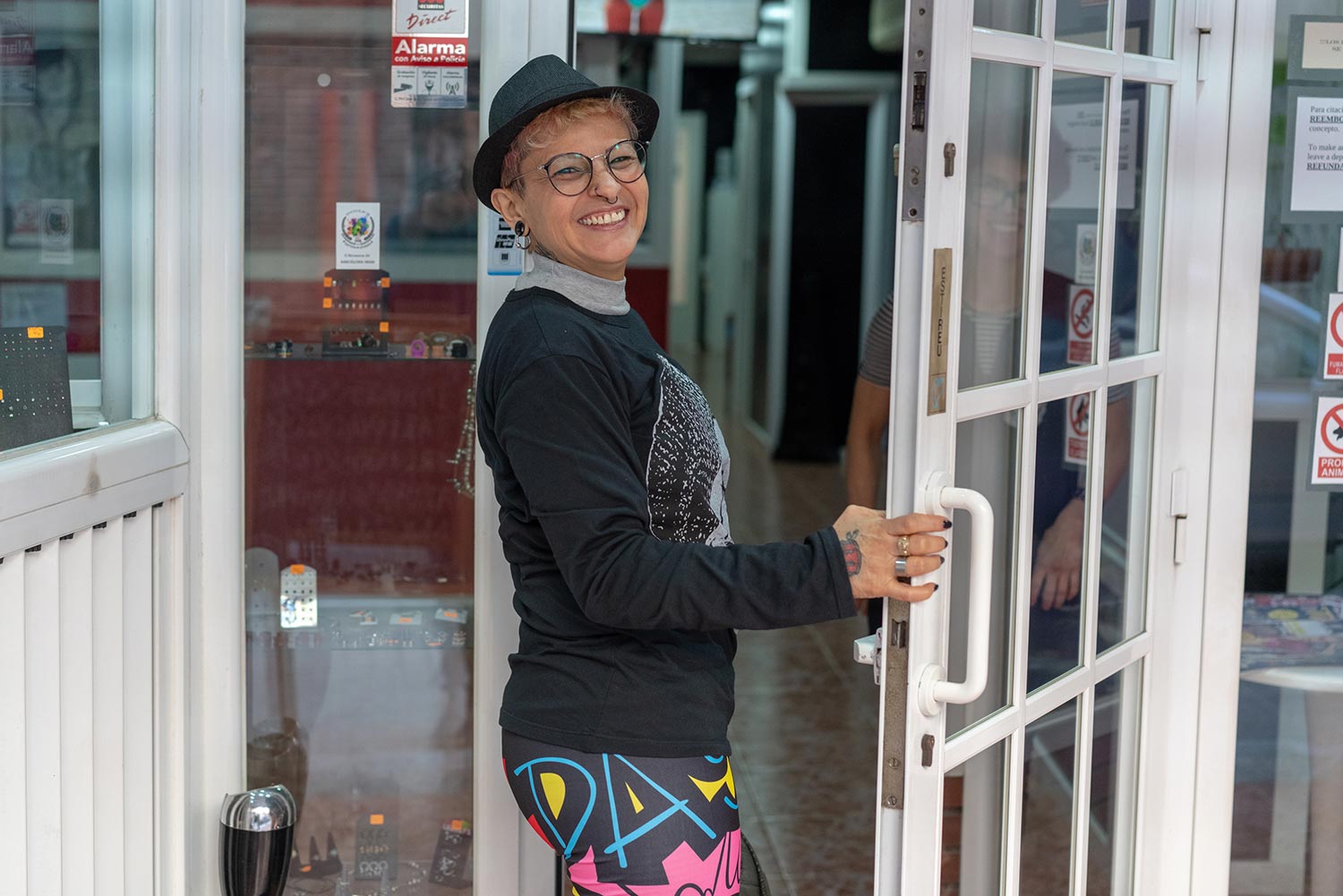
© UNHCR/Markel Redondo
Now, over a decade later, Maritza has finally found safety and love as a refugee with her partner Jenny in Barcelona. The two met online in 2015 when Maritza was at her lowest ebb. Since then, they have built an unbreakable bond and a business together – a tattoo parlour, named after her friend who was murdered in Honduras.
“I am safe here,” says Maritza. “I have my business, I have my love. Without love, you can’t live. By myself, I don’t think I could have built this.”
“I am safe here. I have my business, I have my love. Without love, you can’t live.”
Rising numbers of LGBTI people are fleeing violence or persecution around the world. According to the International Lesbian, Gay, Bisexual, Trans and Intersex Association, over 70 countries criminalize same-sex relationships and five apply the death penalty. Even in safety, many LGBTI refugees struggle to find the support they need.
Some, like Maritza, have found that love can give them the strength to heal and rebuild.
“Jenny found me when I was in a bad situation,” she says. “I had depression and was living in a shelter for homeless people. I wanted to meet someone, but I also wanted to be needed. When we met, I saw her smile and liked her immediately. We have been a big support for each other. I wish we had met 20 years ago.”
Photo: © UNHCR/Markel Redondo
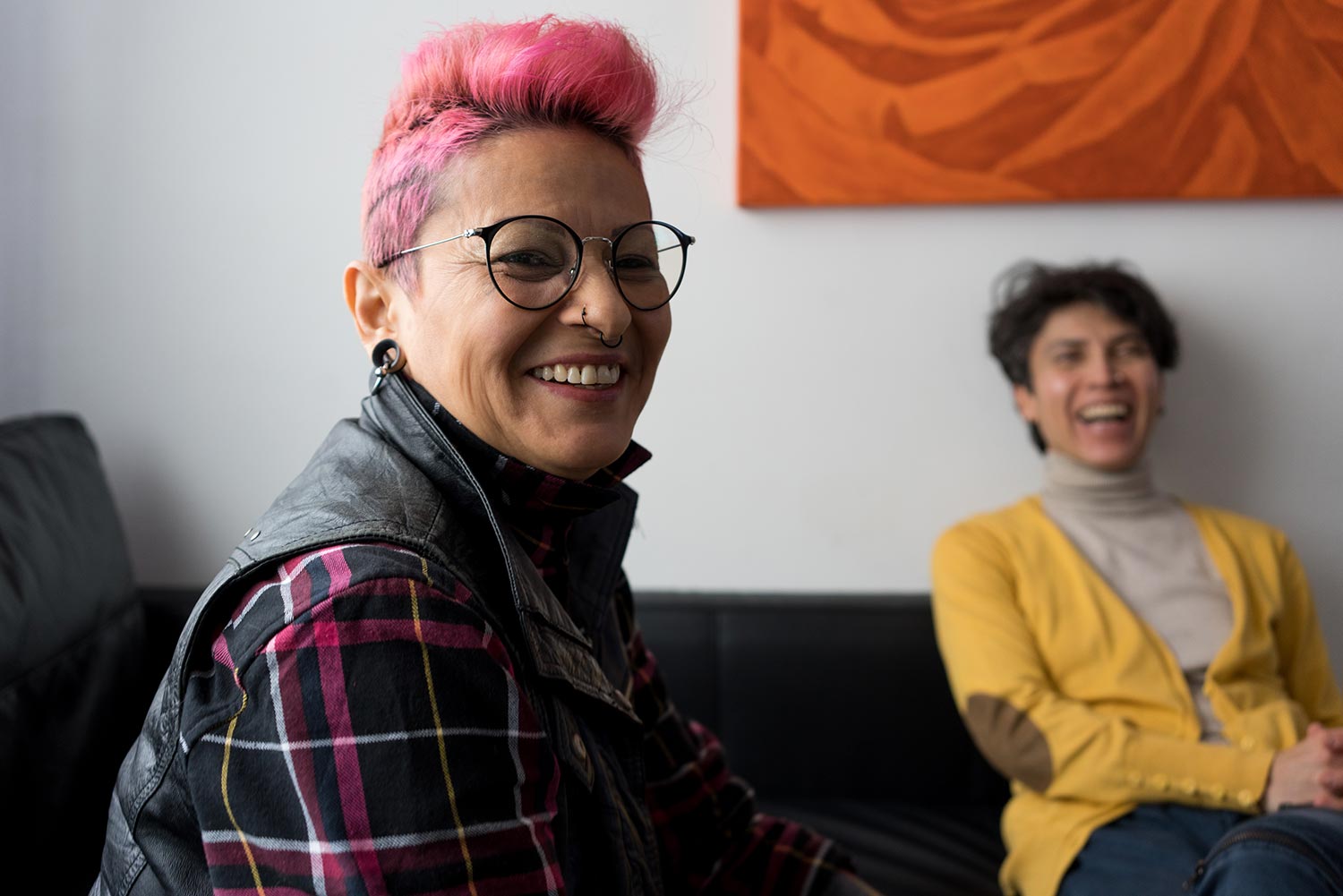
© UNHCR/Markel Redondo
Rising numbers of LGBTI people are fleeing violence or persecution around the world. According to the International Lesbian, Gay, Bisexual, Trans and Intersex Association, over 70 countries criminalize same-sex relationships and five apply the death penalty. Even in safety, many LGBTI refugees struggle to find the support they need.
Some, like Maritza, have found that love can give them the strength to heal and rebuild.
“Jenny found me when I was in a bad situation,” she says. “I had depression and was living in a shelter for homeless people. I wanted to meet someone, but I also wanted to be needed. When we met, I saw her smile and liked her immediately. We have been a big support for each other. I wish we had met 20 years ago.”
The gentle buzz of her tattoo needle belies a painful past in Honduras.
“My mother was a sex worker and I hardly saw my father. I grew up with different people. At the age of nine, I went to live with my godfather, who abused me sexually, physically and mentally. I used to travel all the time to the capital to see my mum. She would buy me presents – gold watches, Nike tennis shoes – I was the richest girl in school. But I was never at home because I was being abused there. I led a double life.”
“We have been a big support for each other. I wish we had met 20 years ago.”
Photo: © UNHCR/Markel Redondo
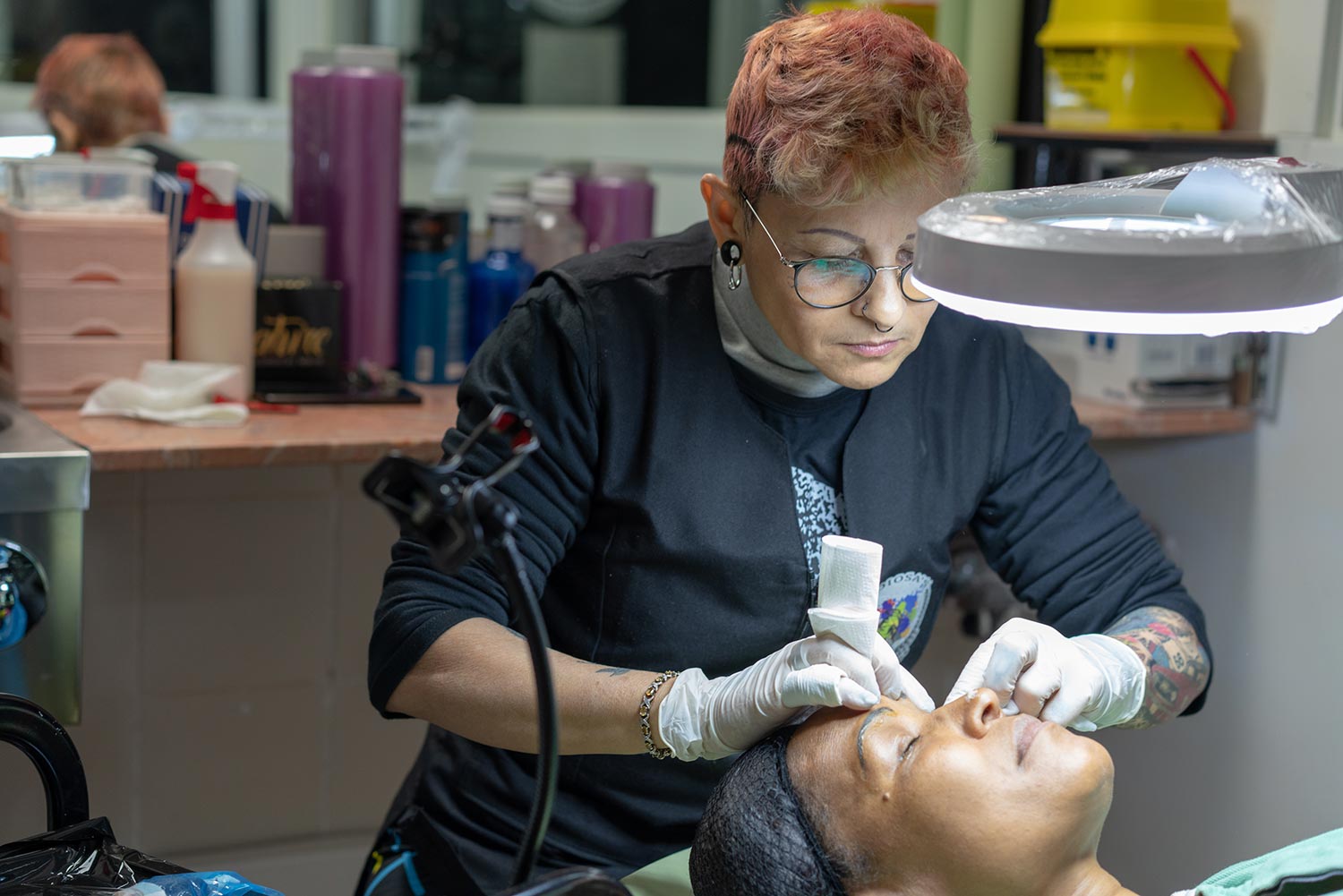
© UNHCR/Markel Redondo
The gentle buzz of her tattoo needle belies a painful past in Honduras.
“My mother was a sex worker and I hardly saw my father. I grew up with different people. At the age of nine, I went to live with my godfather, who abused me sexually, physically and mentally. I used to travel all the time to the capital to see my mum. She would buy me presents – gold watches, Nike tennis shoes – I was the richest girl in school. But I was never at home because I was being abused there. I led a double life.”
“We have been a big support for each other. I wish we had met 20 years ago.”
When she was 17, Maritza left for the United States, where she found work. By the time she returned to Honduras in 2004, she knew she was gay.
“It was awful,” says Maritza. “I became a school teacher, but they fired me when they found out I was gay. I knew the headteacher had seen me with my girlfriend because her car passed us twice. I was really angry. I became an activist when my friend was knifed 22 times. In Honduras, gay people don’t have a life. You spend the whole time being discriminated against. I can’t ever go back.”
Photo: © UNHCR/Markel Redondo
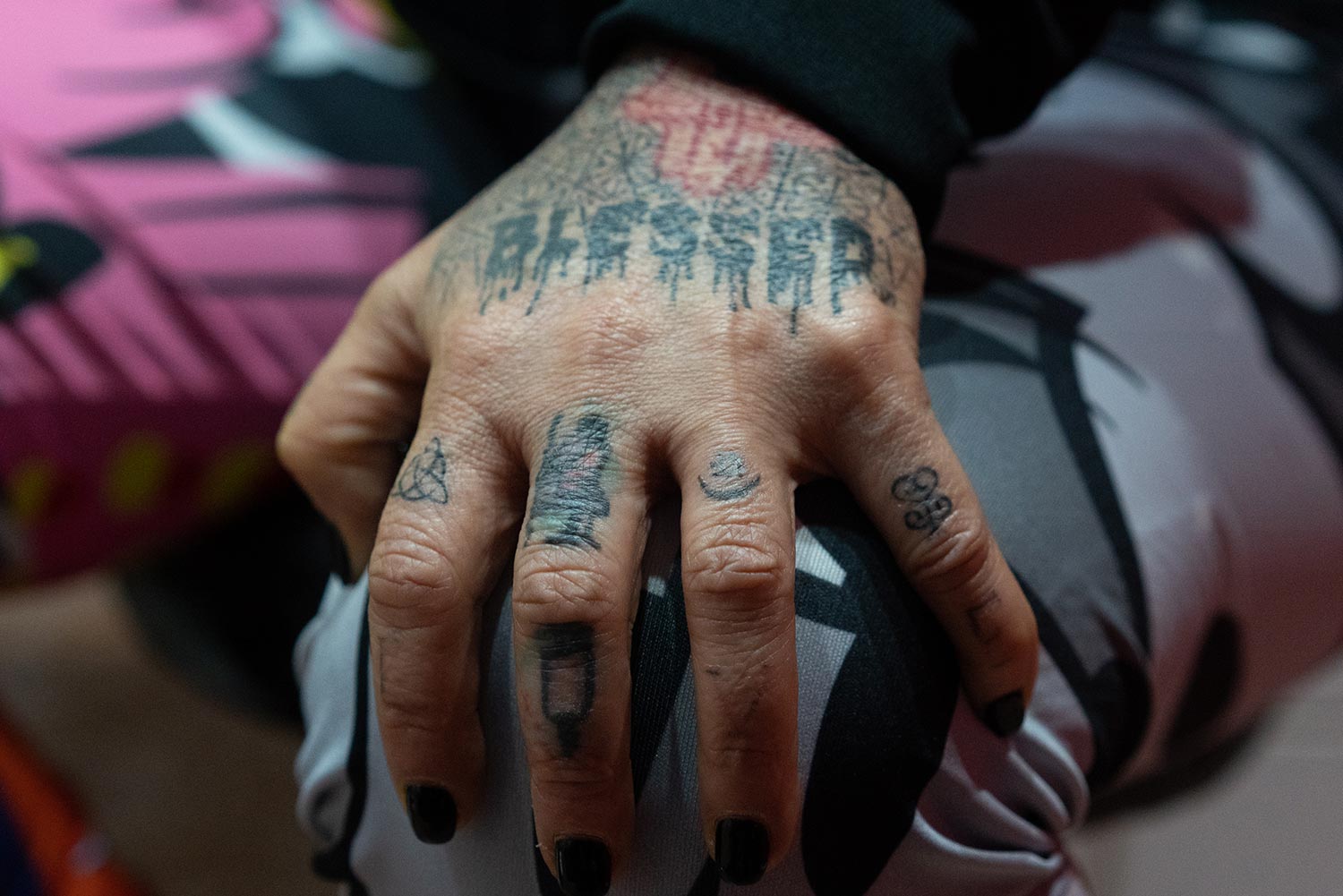
© UNHCR/Markel Redondo
When she was 17, Maritza left for the United States, where she found work. By the time she returned to Honduras in 2004, she knew she was gay.
“It was awful,” says Maritza. “I became a school teacher, but they fired me when they found out I was gay. I knew the headteacher had seen me with my girlfriend because her car passed us twice. I was really angry. I became an activist when my friend was knifed 22 times. In Honduras, gay people don’t have a life. You spend the whole time being discriminated against. I can’t ever go back.”
Even after they have fled home, LGBTI refugees can be subject to continued harm, either in transit or their countries of asylum. Many try to hide their sexual orientation or gender identities in an effort to avoid abuse, making it difficult for aid agencies like UNHCR, the UN Refugee Agency, to identify and support them.
Samer* and Fadi* are still at risk, despite seeking asylum. The Syrian couple fled home when Samer’s brother threatened to kill Fadi. Since then, they have been forced to move home six times in an effort to escape him.
“We did not go through it all to get separated again.”
Photo: © UNHCR/Diego Ibarra Sánchez
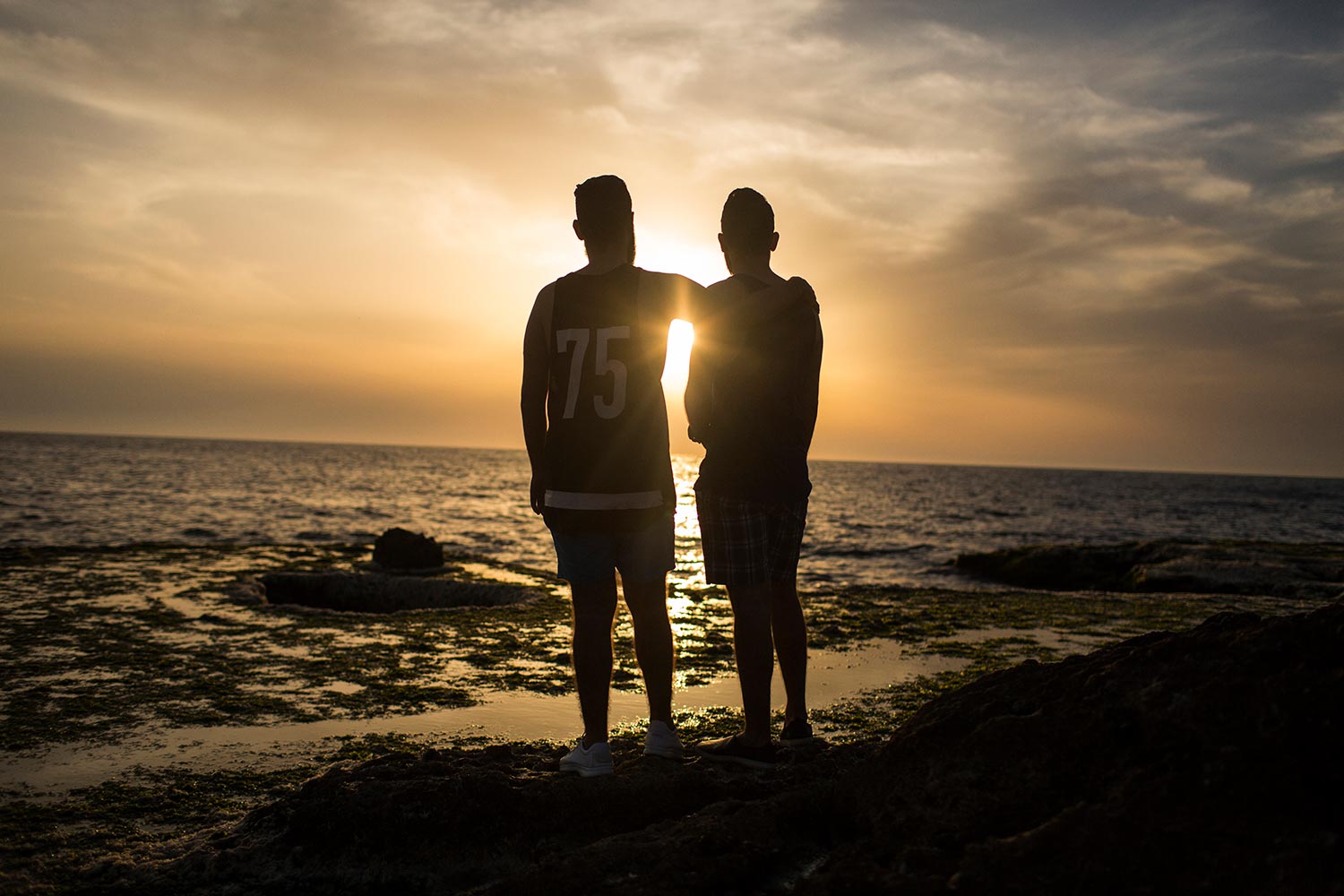
© UNHCR/Diego Ibarra Sánchez
Even after they have fled home, LGBTI refugees can be subject to continued harm, either in transit or their countries of asylum. Many try to hide their sexual orientation or gender identities in an effort to avoid abuse, making it difficult for aid agencies like UNHCR, the UN Refugee Agency, to identify and support them.
Samer* (left) and Fadi* are still at risk, despite seeking asylum. The Syrian couple fled home when Samer’s brother threatened to kill Fadi. Since then, they have been forced to move home six times in an effort to escape him.
“We did not go through it all to get separated again.”
Even now, the two men are too afraid to reveal where they are living.
“We planned our escape for a year,” says 28-year-old Samer. “We had no money, nothing, so we saved some. But our experience in exile is not what we expected. The fears did not go away, the threats did not go away, we still live in fear. Living here has been hard. There is so much discrimination against us as Syrians and even integrating in the LGBT community here has been hard. We feel different.”
Photo: © UNHCR/Diego Ibarra Sánchez
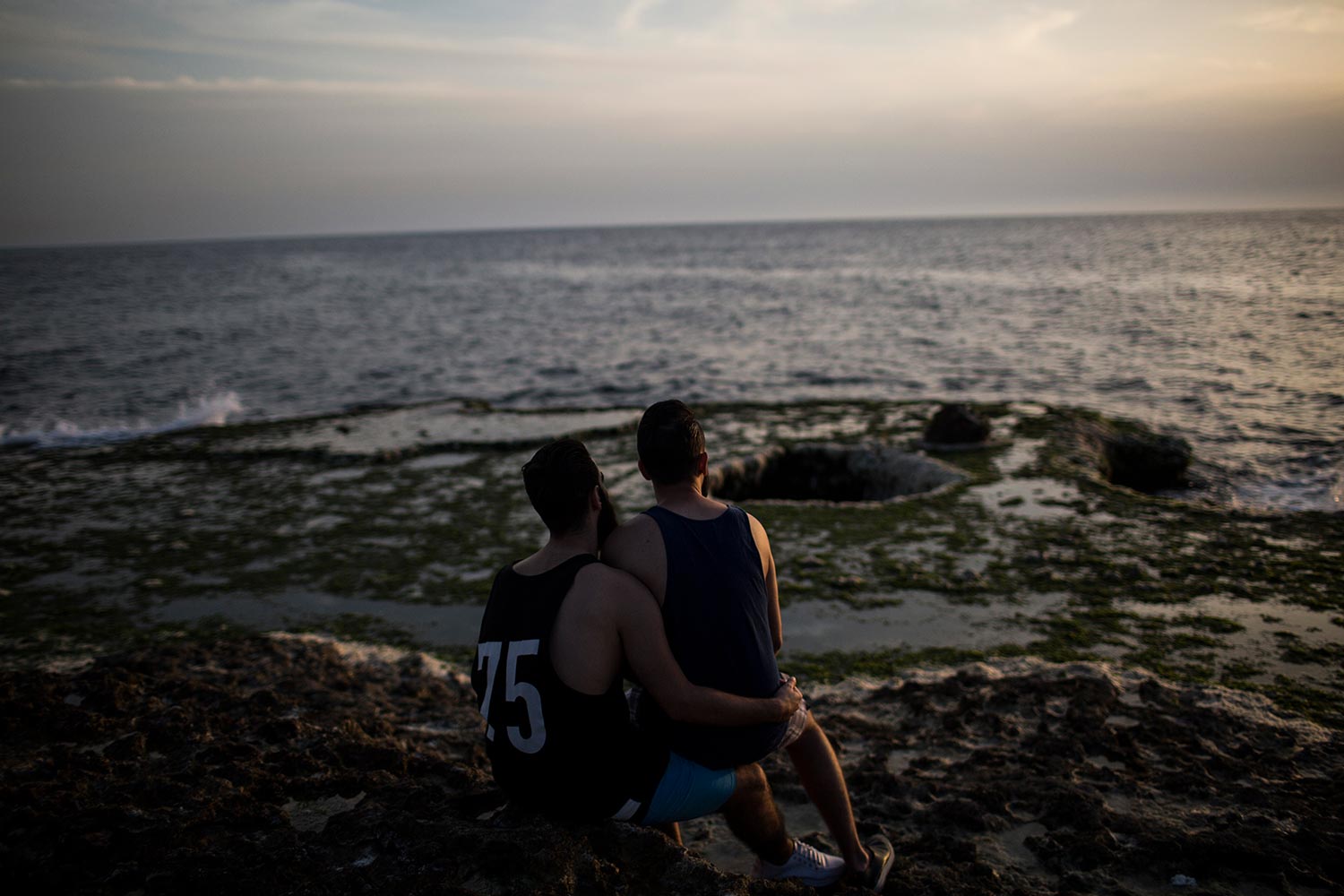
© UNHCR/Diego Ibarra Sánchez
Even now, the two men are too afraid to reveal where they are living.
“We planned our escape for a year,” says 28-year-old Samer. “We had no money, nothing, so we saved some. But our experience in exile is not what we expected. The fears did not go away, the threats did not go away, we still live in fear. Living here has been hard. There is so much discrimination against us as Syrians and even integrating in the LGBT community here has been hard. We feel different.”
Fadi and Samer hope to be resettled somewhere safe. And, despite the threats and fear, the love they share gives them the strength to keep going.
“I gave up everything to be with him,” says 24-year-old Fadi. “It is my right to live with the person I love, without having anyone asking me what is happening and why. I want to be free and to live a normal life. I love him so much. He makes me stronger.”
Samer, who once saved Fadi from killing himself after their families attempted to separate them, cannot imagine life without his partner.
“He is strong,” he says. “If he wasn’t strong, he wouldn’t be here today.”
“It is my right to live with the person I love, without having anyone asking me what is happening and why.”
Photo: © UNHCR/Diego Ibarra Sánchez
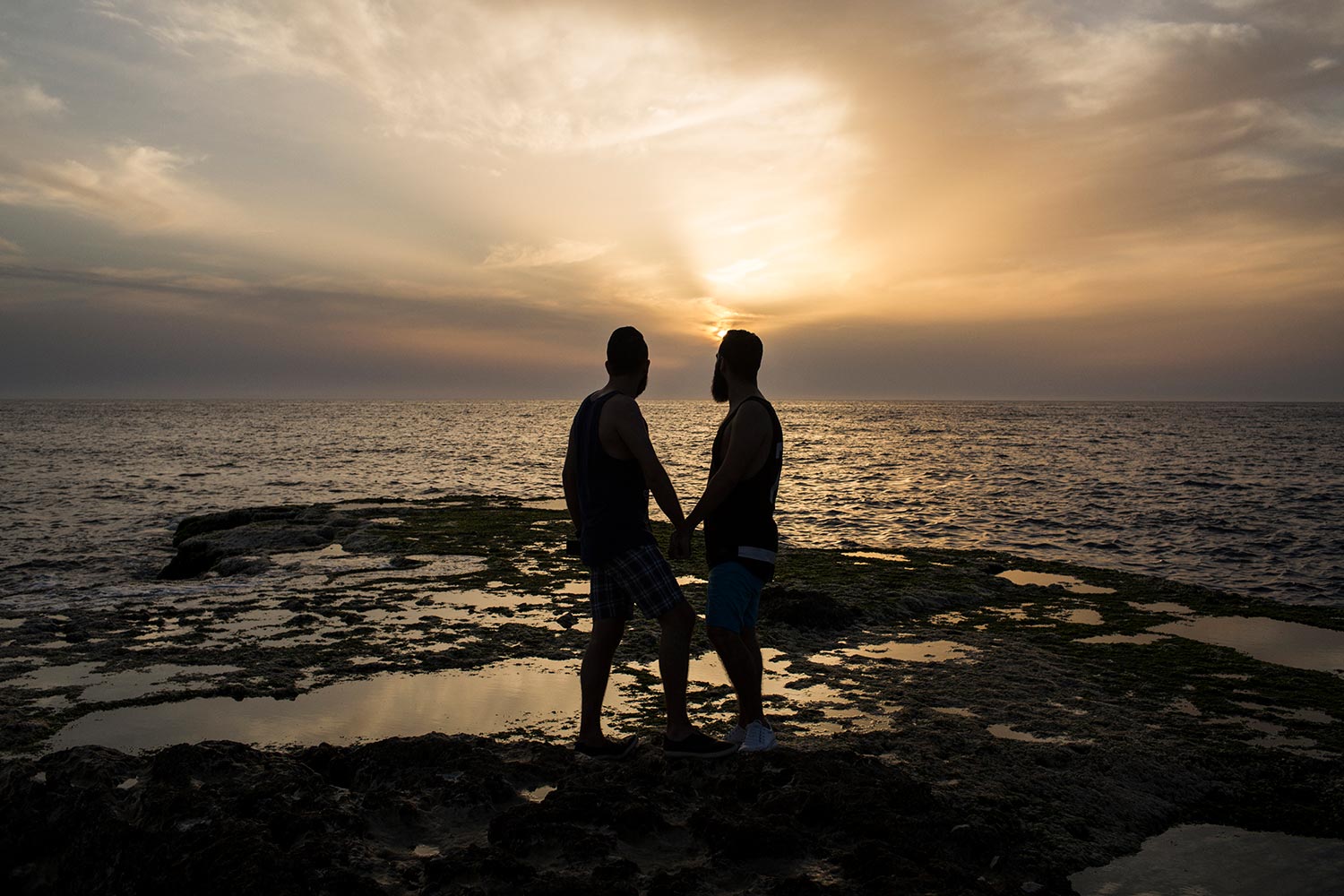
© UNHCR/Diego Ibarra Sánchez
Fadi and Samer hope to be resettled somewhere safe. And, despite the threats and fear, the love they share gives them the strength to keep going.
“I gave up everything to be with him,” says 24-year-old Fadi. “It is my right to live with the person I love, without having anyone asking me what is happening and why. I want to be free and to live a normal life. I love him so much. He makes me stronger.”
Samer, who once saved Fadi from killing himself after their families attempted to separate them, cannot imagine life without his partner.
“He is strong,” he says. “If he wasn’t strong, he wouldn’t be here today.”
“It is my right to live with the person I love, without having anyone asking me what is happening and why.”
Support networks are vital for LGBTI refugees, who have often lost the support of family and friends and are vulnerable to violence or abuse.
“As human beings we all rely on our support networks, be it family, friends, or community and religious groups,” said UNHCR High Commissioner Filippo Grandi last year. “When people flee their homes and communities, their support networks become fragile and broken, and the protection risks they face often become more acute.”
Photo: © UNHCR/Diego Ibarra Sánchez
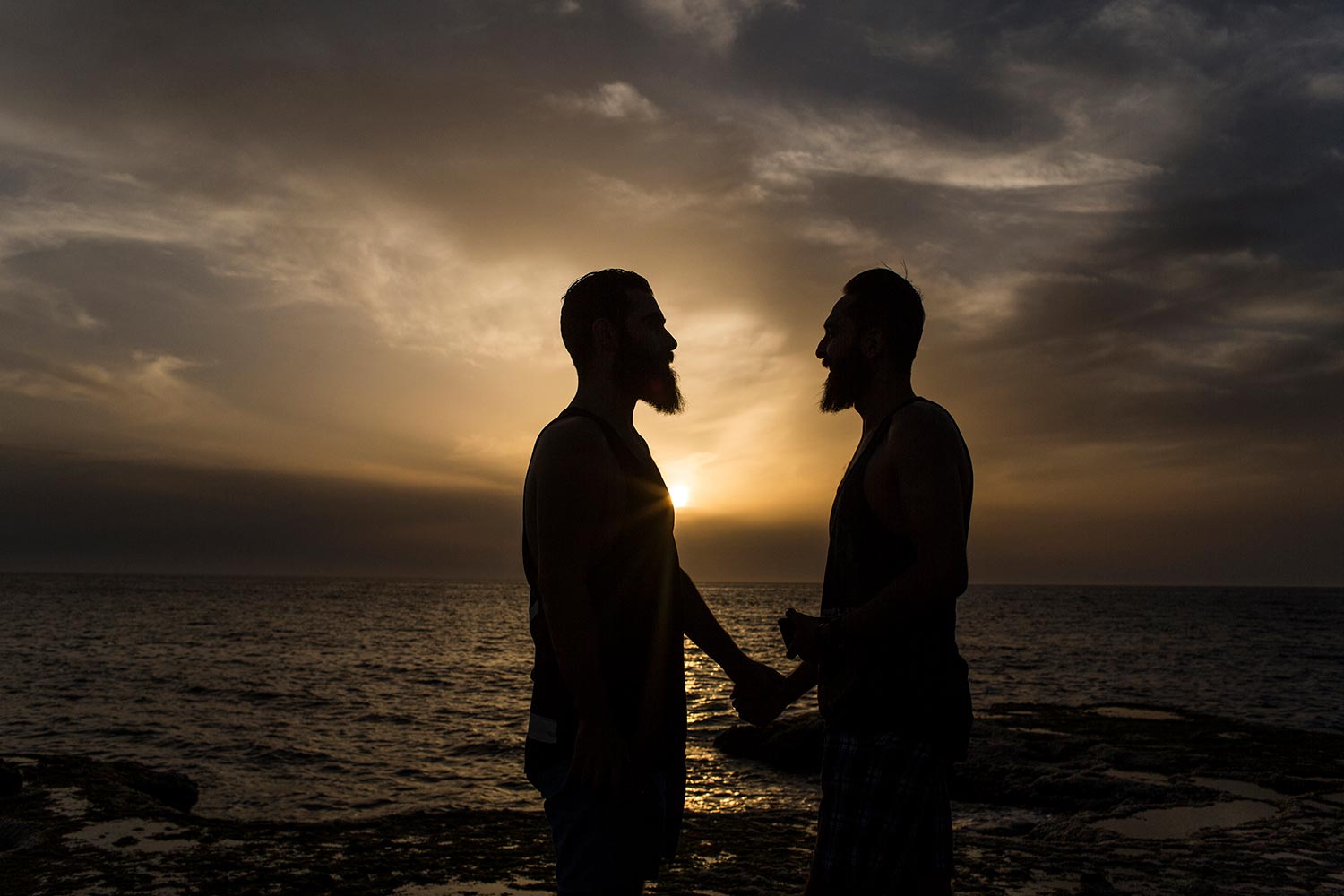
© UNHCR/Diego Ibarra Sánchez
Support networks are vital for LGBTI refugees, who have often lost the support of family and friends and are vulnerable to violence or abuse.
“As human beings we all rely on our support networks, be it family, friends, or community and religious groups,” said UNHCR High Commissioner Filippo Grandi last year. “When people flee their homes and communities, their support networks become fragile and broken, and the protection risks they face often become more acute.”
Transgender activist Pedro*, 25, is finally able to look forward to the future after fleeing El Salvador and seeking asylum in Guatemala.
“In El Salvador, it is especially hard when you are transgender,” says Pedro. “My life was at risk because of my gender identity. Gangs wanted me to sell drugs for them. They believed that because I am a transgender person, I was someone who could pass unnoticed by the police. I refused to do it several times, but one night they showed up at my house and threatened me. They told me they would kill me if I didn’t comply. I did not want to leave my country, but I couldn’t stay in a place that put my life in danger.”
While LGBTI people can suffer serious violence and discrimination in Guatemala, Pedro has found safety in his small community.
“In Guatemala, I feel accepted in my neighbourhood and very few people discriminate against me. I made a new friend who I can trust. I also met my partner Lucia* while coordinating a meeting for the Pride parade celebration.”
Photo: © UNHCR/Pablo Villagran

© UNHCR/Pablo Villagran
Transgender activist Pedro* (left), 25, is finally able to look forward to the future after fleeing El Salvador and seeking asylum in Guatemala.
“In El Salvador, it is especially hard when you are transgender,” says Pedro. “My life was at risk because of my gender identity. Gangs wanted me to sell drugs for them. They believed that because I am a transgender person, I was someone who could pass unnoticed by the police. I refused to do it several times, but one night they showed up at my house and threatened me. They told me they would kill me if I didn’t comply. I did not want to leave my country, but I couldn’t stay in a place that put my life in danger.”
While LGBTI people can suffer serious violence and discrimination in Guatemala, Pedro has found safety in his small community.
“In Guatemala, I feel accepted in my neighbourhood and very few people discriminate against me. I made a new friend who I can trust. I also met my partner Lucia* while coordinating a meeting for the Pride parade celebration.”
“For us, it was like love at first sight,” continues Pedro. “I feel like I am regaining my life, thanks to her. We have been dating for almost a year now. We love to go to local parks and sit at the root of big trees and talk.”
He and 25-year-old Lucia radiate happiness. Passionate about human rights, they are determined to keep fighting for others.“If LGBTI people are being abused or discriminated against, it is important to report it,” says Pedro. “We shouldn’t stay quiet when things like this happen. Fear should not stop us. We should have the right to be who we are, to be free and to be safe.”
“We should have the right to be who we are, to be free and to be safe.”
Photo: © UNHCR/Pablo Villagran
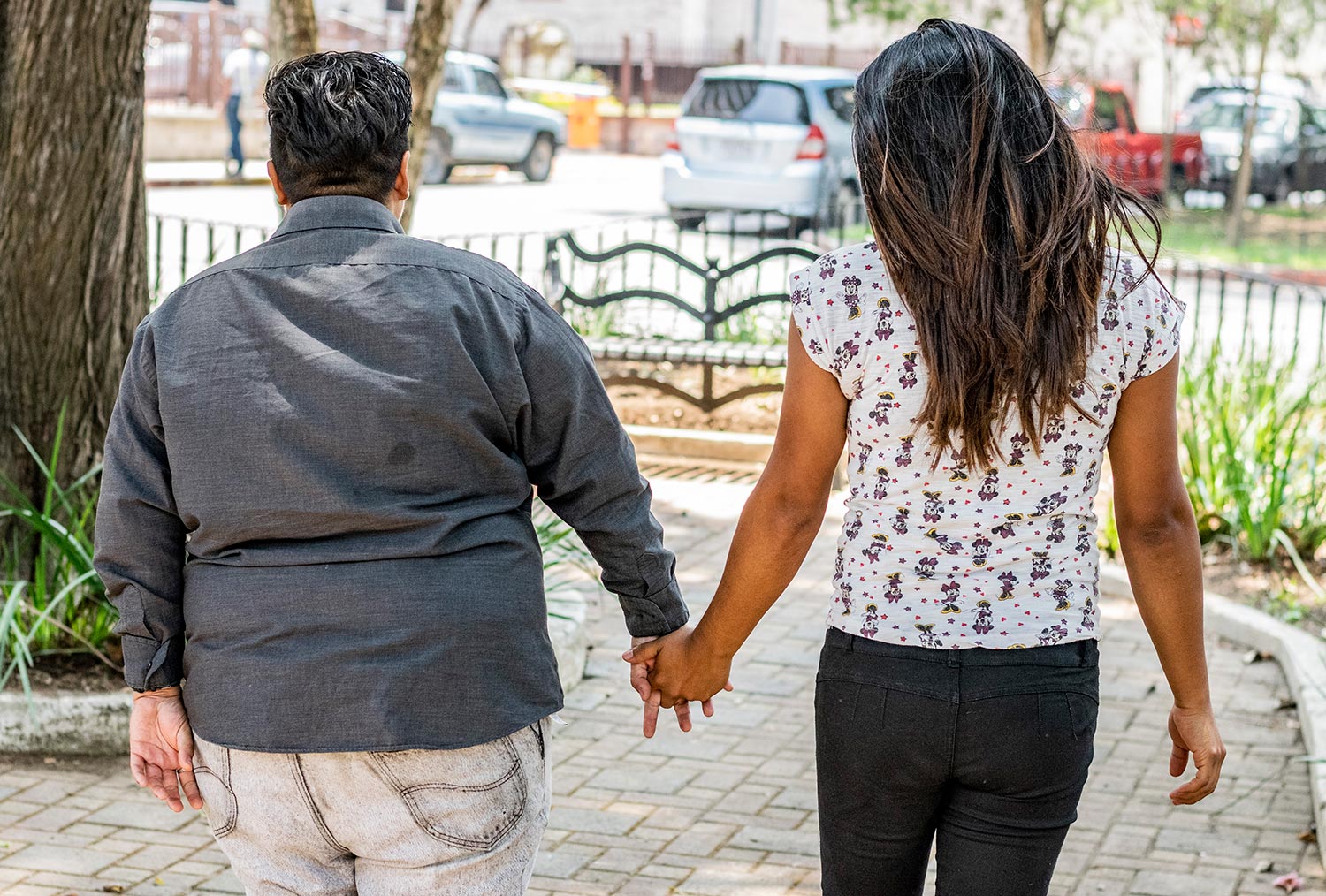
© UNHCR/Pablo Villagran
“For us, it was like love at first sight,” continues Pedro. “I feel like I am regaining my life, thanks to her. We have been dating for almost a year now. We love to go to local parks and sit at the root of big trees and talk.”
He and 25-year-old Lucia radiate happiness. Passionate about human rights, they are determined to keep fighting for others.“If LGBTI people are being abused or discriminated against, it is important to report it,” says Pedro. “We shouldn’t stay quiet when things like this happen. Fear should not stop us. We should have the right to be who we are, to be free and to be safe.”
“We should have the right to be who we are, to be free and to be safe.”
LGBTI refugees also have plenty to contribute.
Amani, 38, fled Libya after her family found out she was gay and threatened to close down her business. A lack of financial, social and other support from family and communities can leave many LGBTI people vulnerable. Gay women are especially at risk in societies where women have inferior social and economic status.
Cut off from her family, Amani sought asylum in Italy. The entrepreneur spent almost a year living in a centre for refugees and migrants, along with 60 other women.
“I was sad and crying in my room,” she recalls. “I wanted my privacy, but I was sharing with three girls. You had to be careful who you spoke to. I felt like I was alone and hiding my identify because I was afraid people would attack me. But, after a few months, I started to speak with my case worker and open up about why I was there.”
Photo: © UNHCR/Federico Scoppa
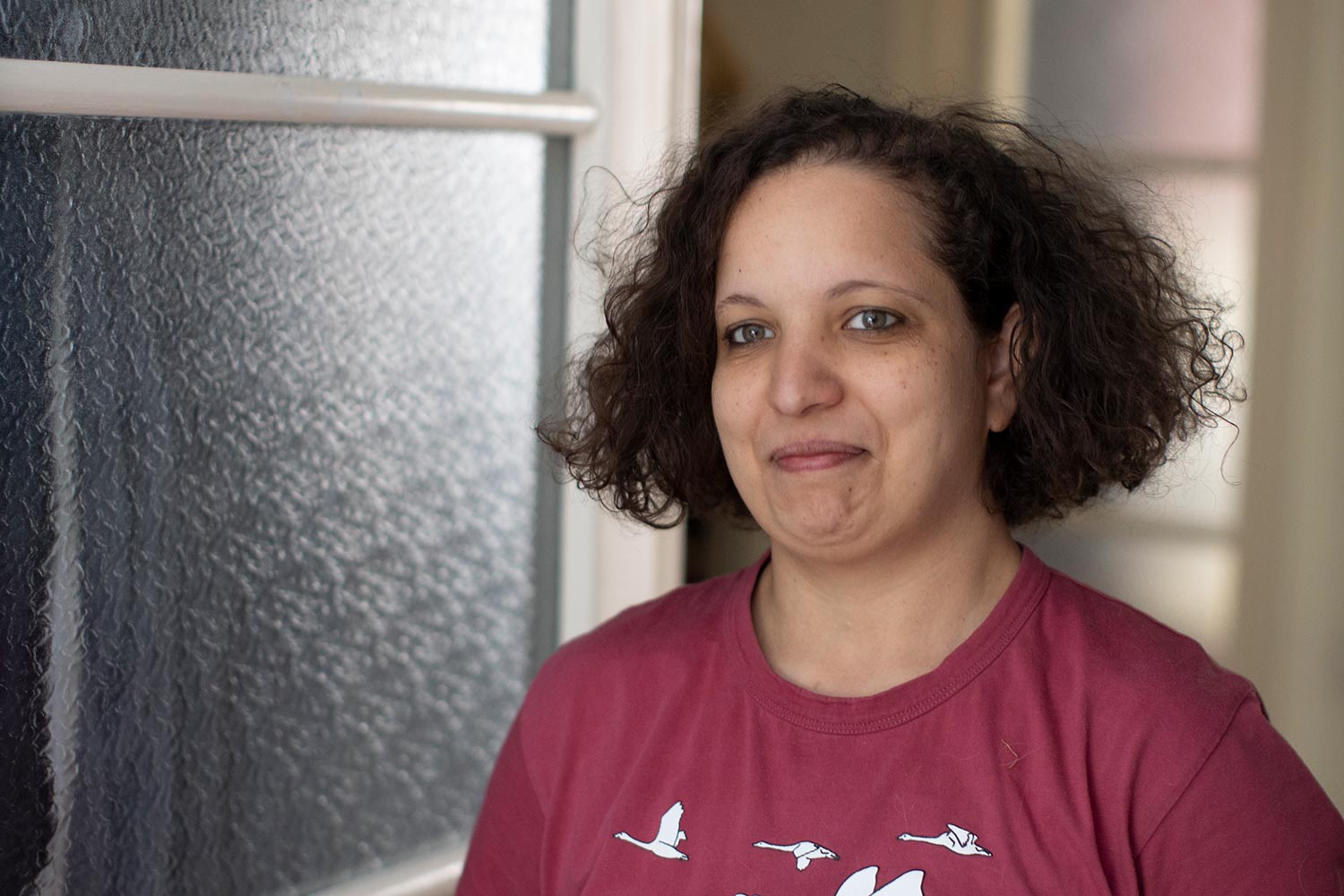
© UNHCR/Federico Scoppa
LGBTI refugees also have plenty to contribute.
Amani, 38, fled Libya after her family found out she was gay and threatened to close down her business. A lack of financial, social and other support from family and communities can leave many LGBTI people vulnerable. Gay women are especially at risk in societies where women have inferior social and economic status.
Cut off from her family, Amani sought asylum in Italy. The entrepreneur spent almost a year living in a centre for refugees and migrants, along with 60 other women.
“I was sad and crying in my room,” she recalls. “I wanted my privacy, but I was sharing with three girls. You had to be careful who you spoke to. I felt like I was alone and hiding my identify because I was afraid people would attack me. But, after a few months, I started to speak with my case worker and open up about why I was there.”
In an effort to reach out, Amani began cooking for her fellow refugees and eventually started a catering service, which still operates today.
“It was just a small project,” she says. “Now it’s huge – we cook at many centres. I like it because you can speak with the people, you can exchange knowledge and cuisine and music. It’s an exchange of cultures.”
She hopes her latest venture, a group offering support and advice to female gay asylum-seekers in Italy, will make life easier for those who flee hardship at home.
“It’s like my mission,” says Amani. “Because I couldn’t find anyone to help me when I arrived here. Maybe now we can do something.”
Photo: © UNHCR/Federico Scoppa
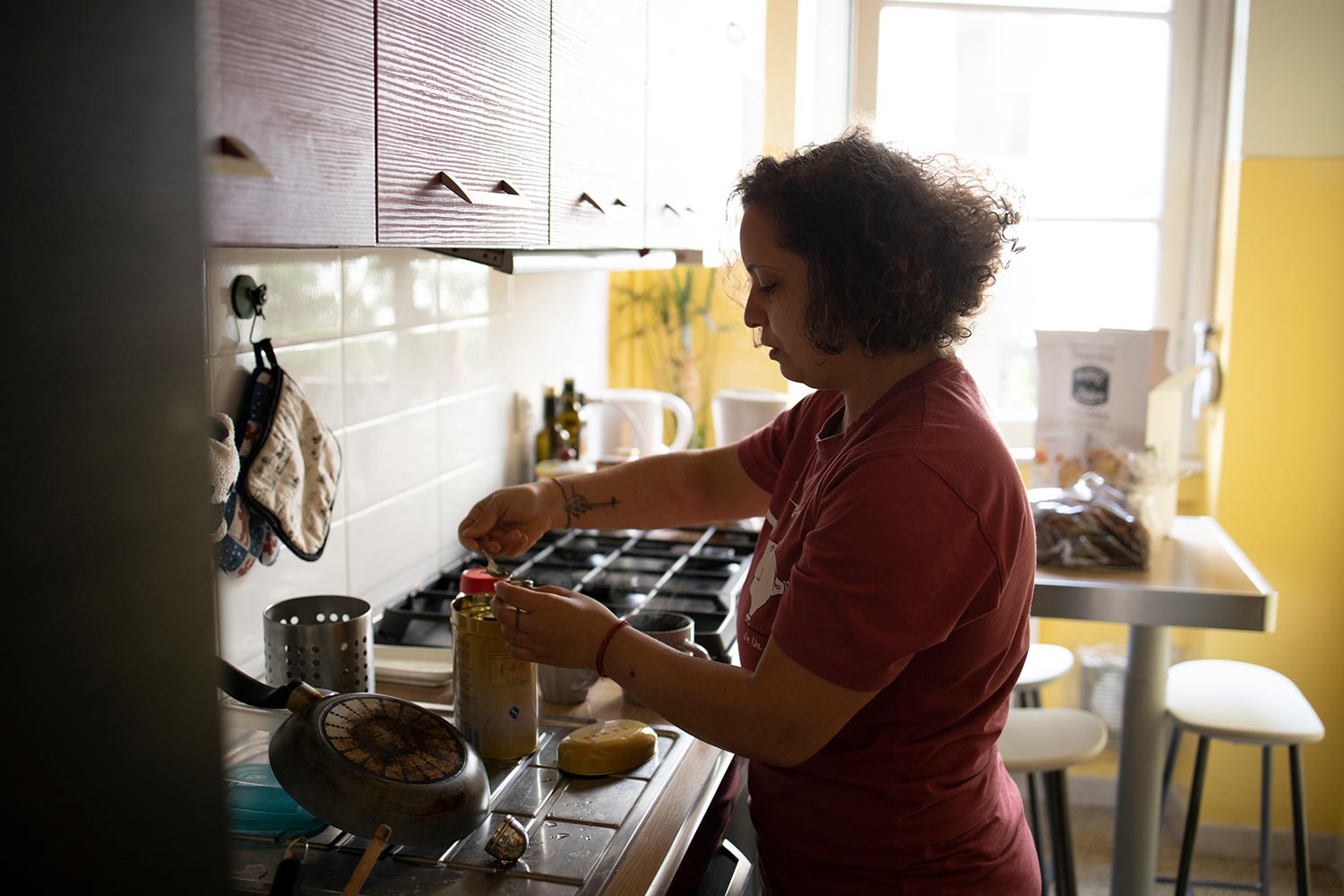
© UNHCR/Federico Scoppa
In an effort to reach out, Amani began cooking for her fellow refugees and eventually started a social enterprise, which still operates today.
“It was just a small project,” she says. “Now it’s huge – we cook at many centres. I like it because you can speak with the people, you can exchange knowledge and cuisine and music. It’s an exchange of cultures.”
She hopes her latest venture, a group offering support and advice to female gay asylum-seekers in Italy, will make life easier for those who flee hardship at home.
“It’s like my mission,” says Amani. “Because I couldn’t find anyone to help me when I arrived here. Maybe now we can do something.”
“I saw her and I fell in love immediately. I couldn’t believe those beautiful eyes were real.”
Amani and her partner Maria, who lives in Switzerland, met at a meeting for charity volunteers last year. Maria has found a kindred spirit in Amani, having been forced to flee political persecution in Chile with her family when she was four.
“I saw her and I fell in love immediately,” recalls Maria, with a smile. “I couldn’t believe those beautiful eyes were real.”
“We are so different,” adds Amani. “But we have many things in common. She says I show her things that she never thought existed, she says I make her open her mind.”
Photo: © UNHCR/Federico Scoppa
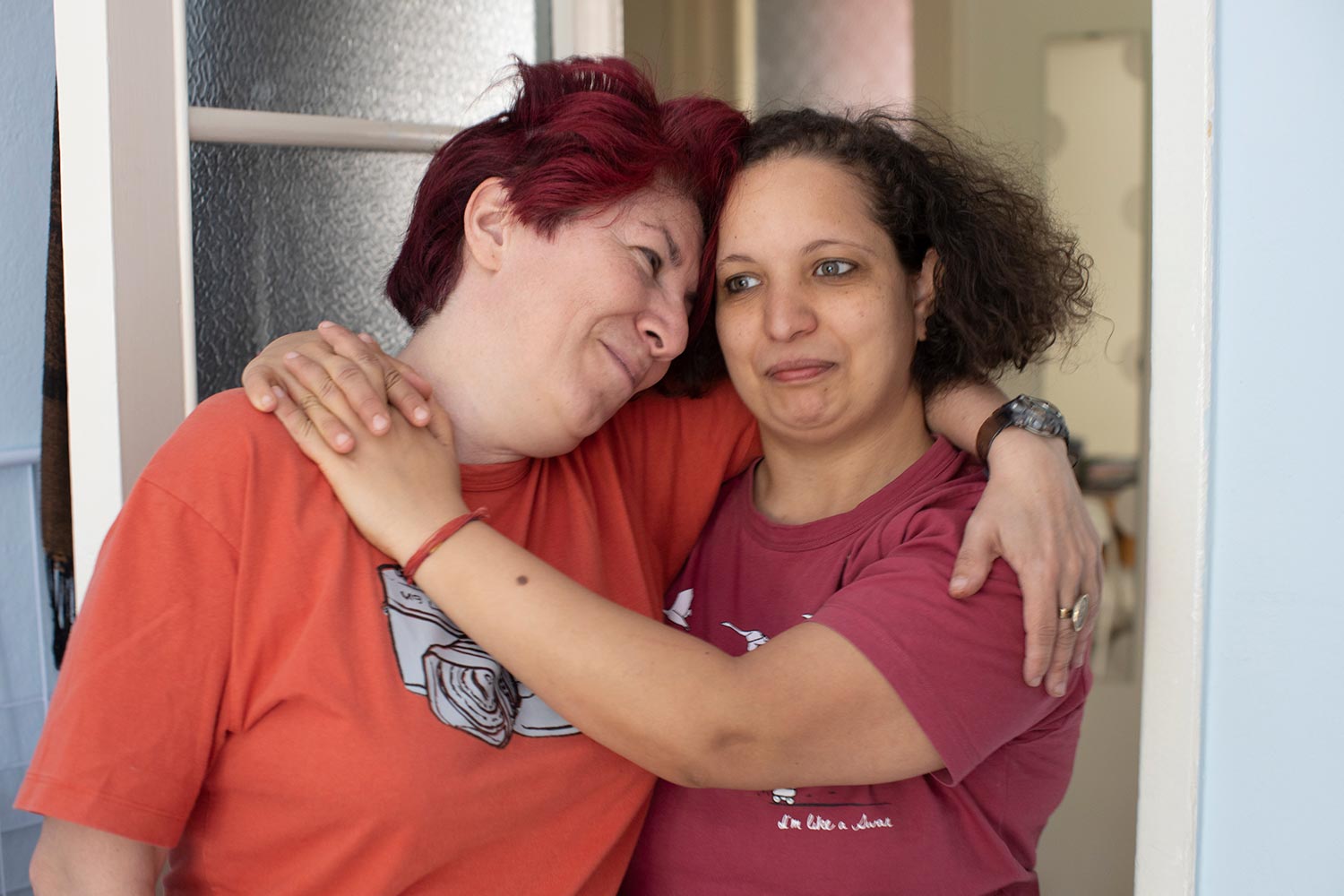
© UNHCR/Federico Scoppa
“I saw her and I fell in love immediately. I couldn’t believe those beautiful eyes were real.”
Amani and her partner Maria, who lives in Switzerland, met at a meeting for charity volunteers last year. Maria has found a kindred spirit in Amani, having been forced to flee political persecution in Chile with her family when she was four.
“I saw her and I fell in love immediately,” recalls Maria, with a smile. “I couldn’t believe those beautiful eyes were real.”
“We are so different,” adds Amani. “But we have many things in common. She says I show her things that she never thought existed, she says I make her open her mind.”
At a time when over 68.5 million people have fled their homes, love has never been more important, breaking down barriers and building communities. Love has the power to bring people together, even when the world around them is being torn apart.
UNHCR works to protect LGBTI refugees and asylum-seekers worldwide. But challenges persist and many people risk remaining invisible. We need your help.
*Names have been changed for protection
